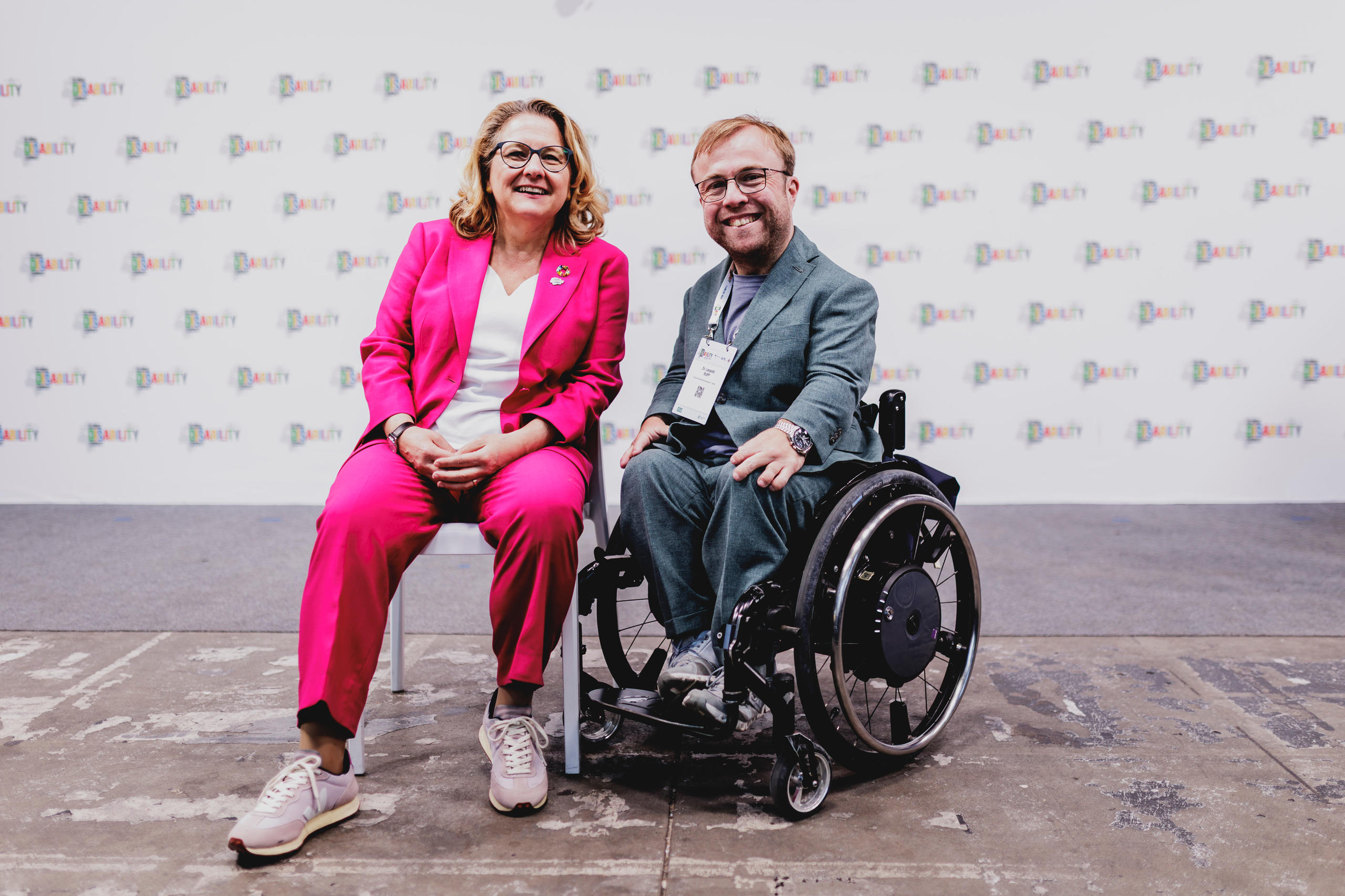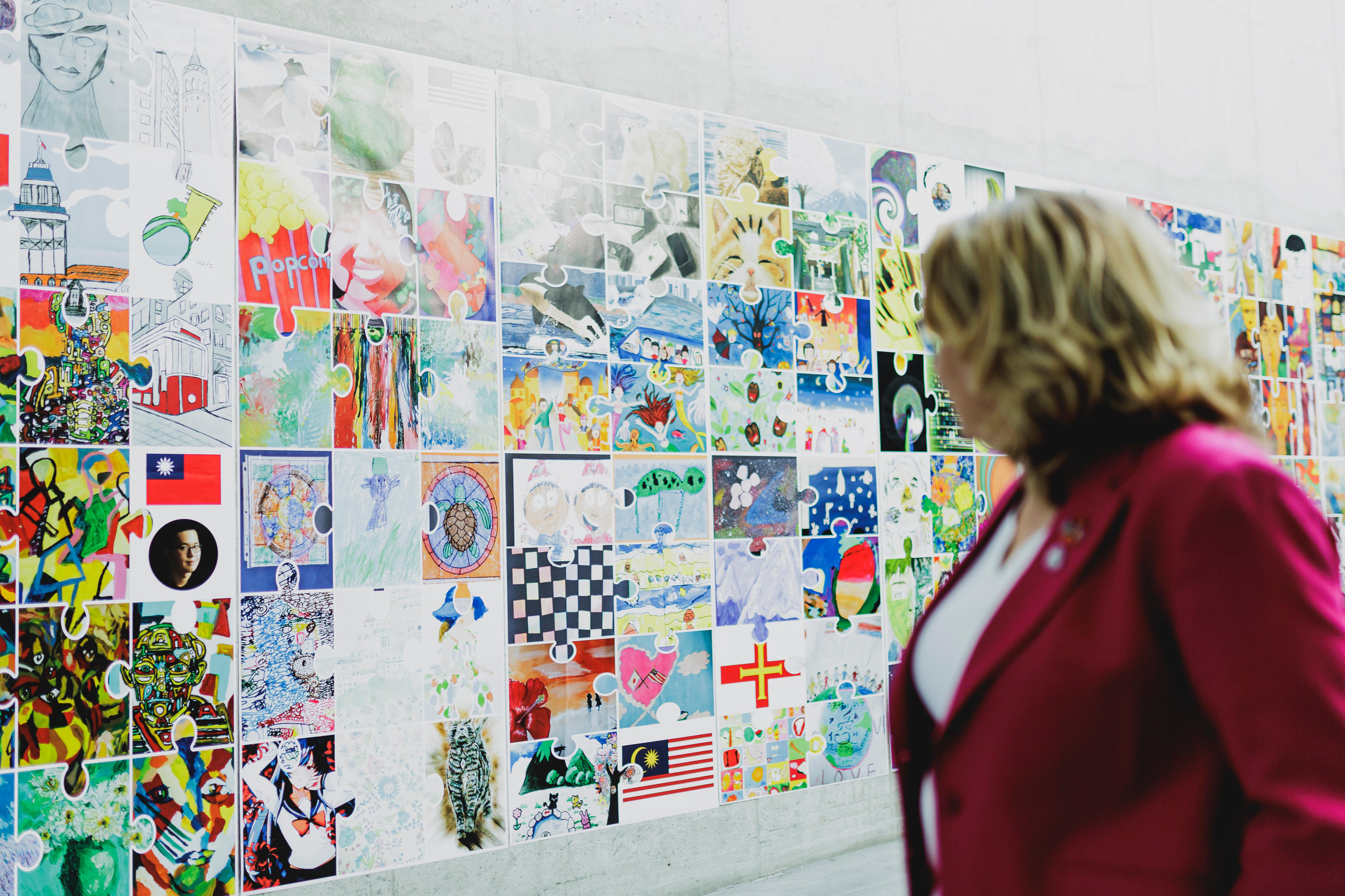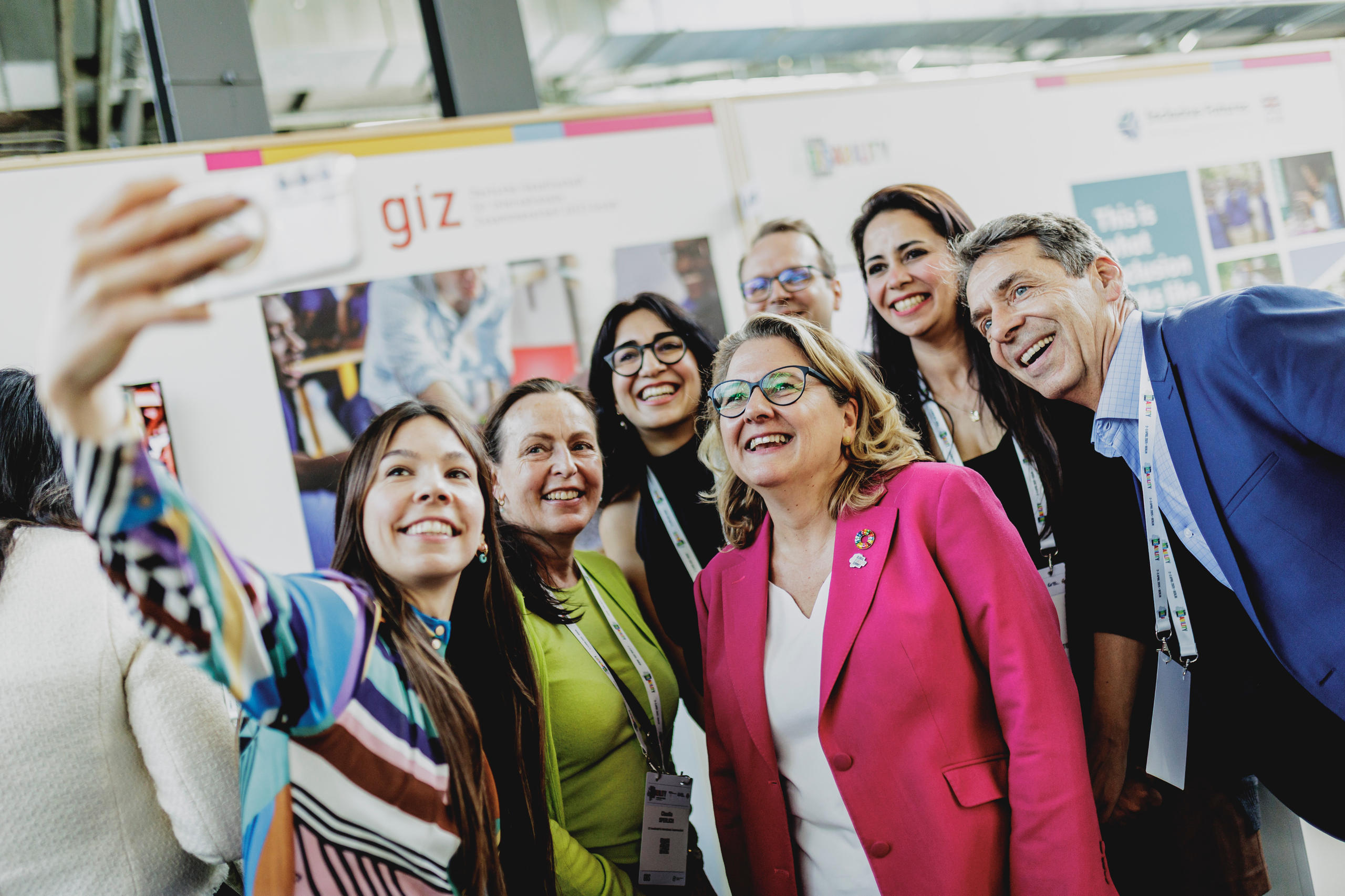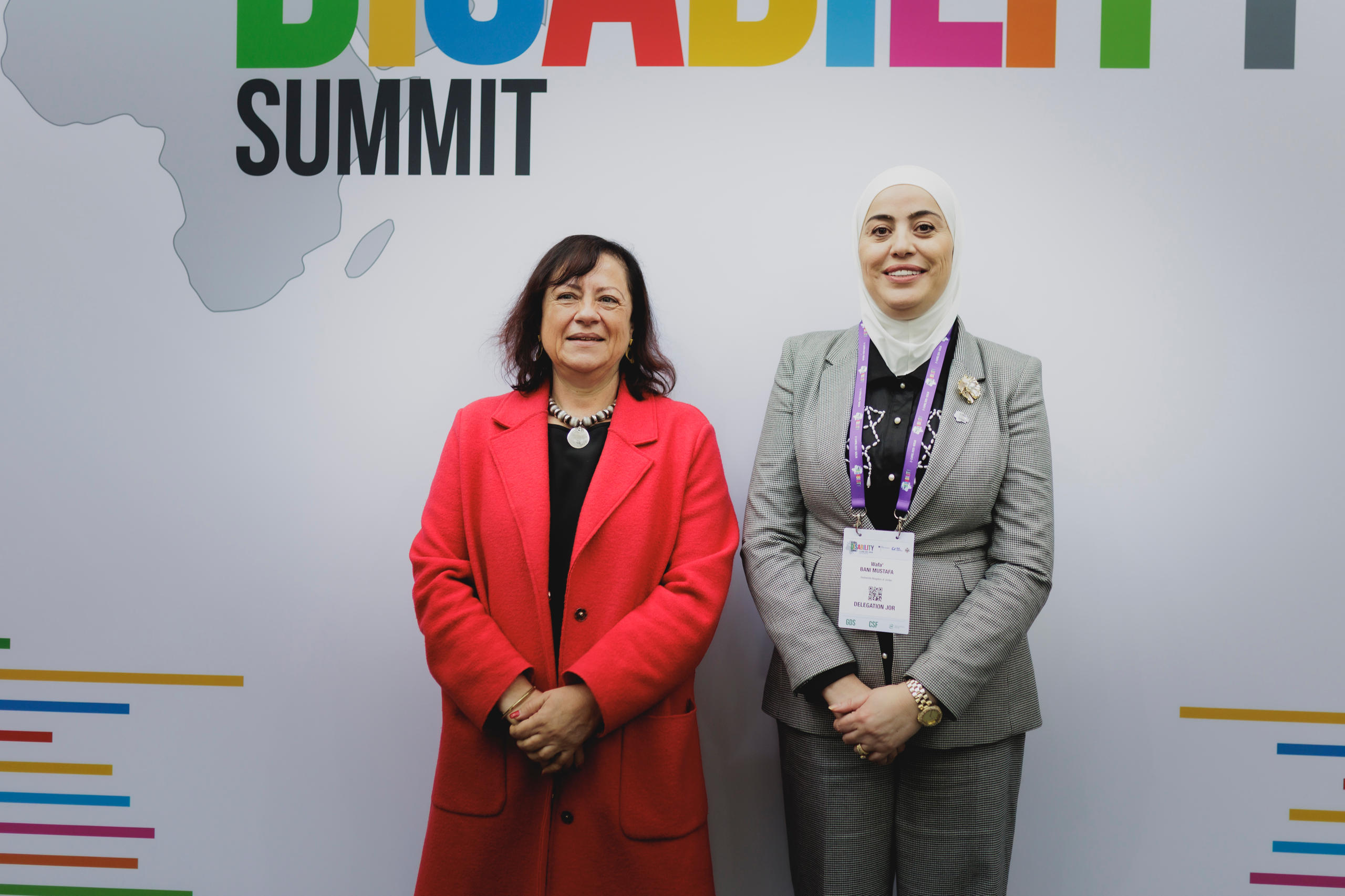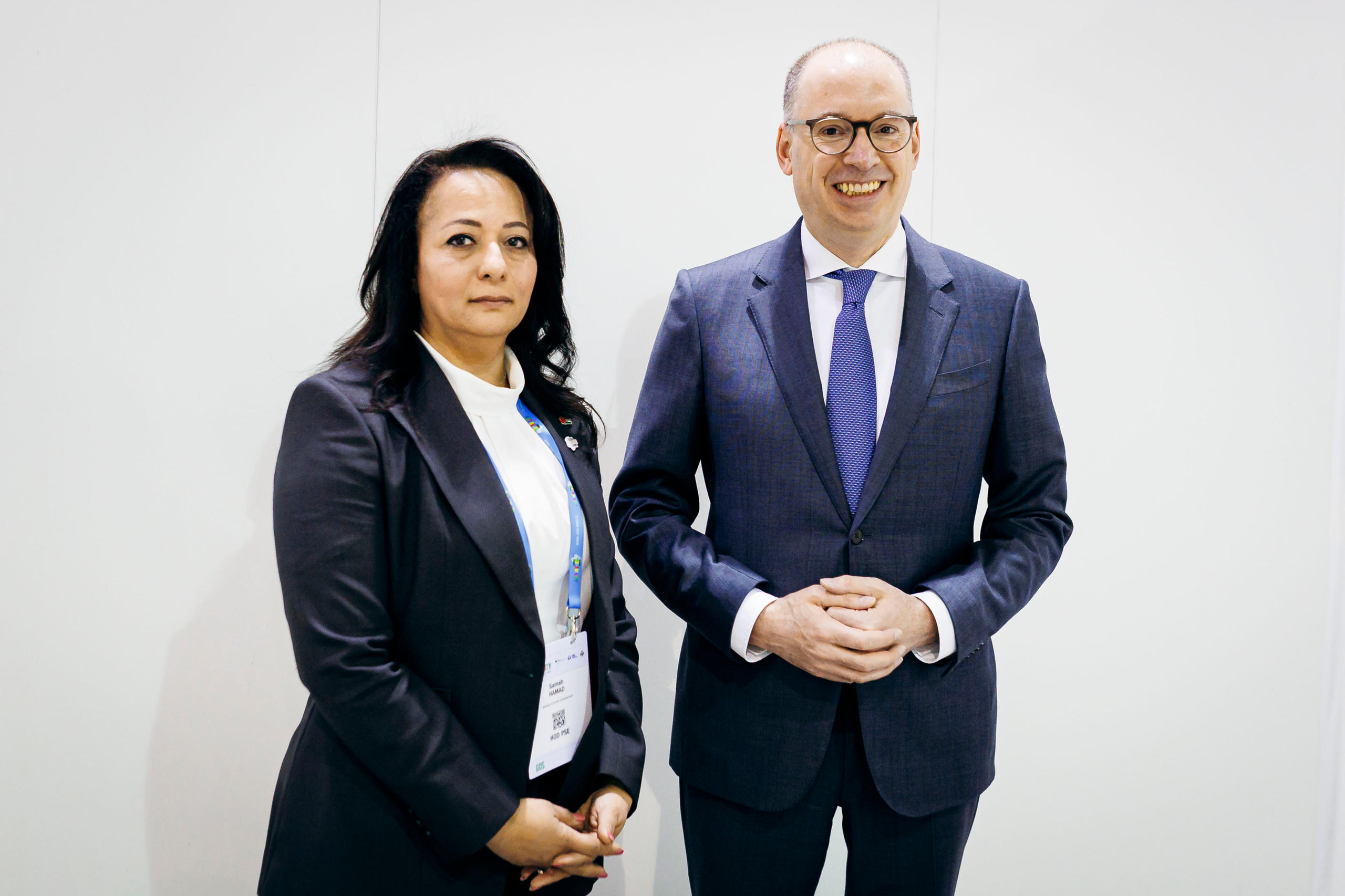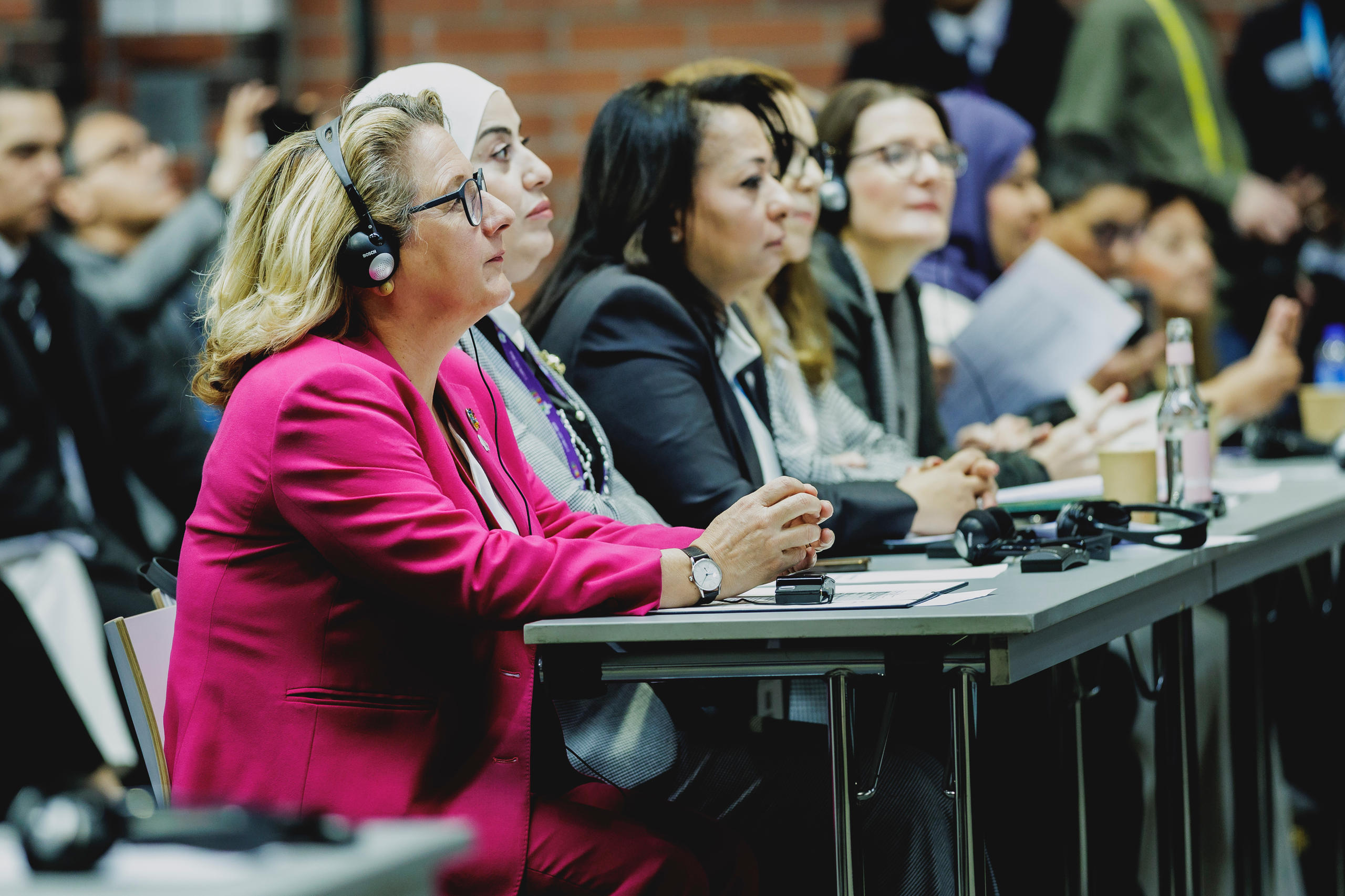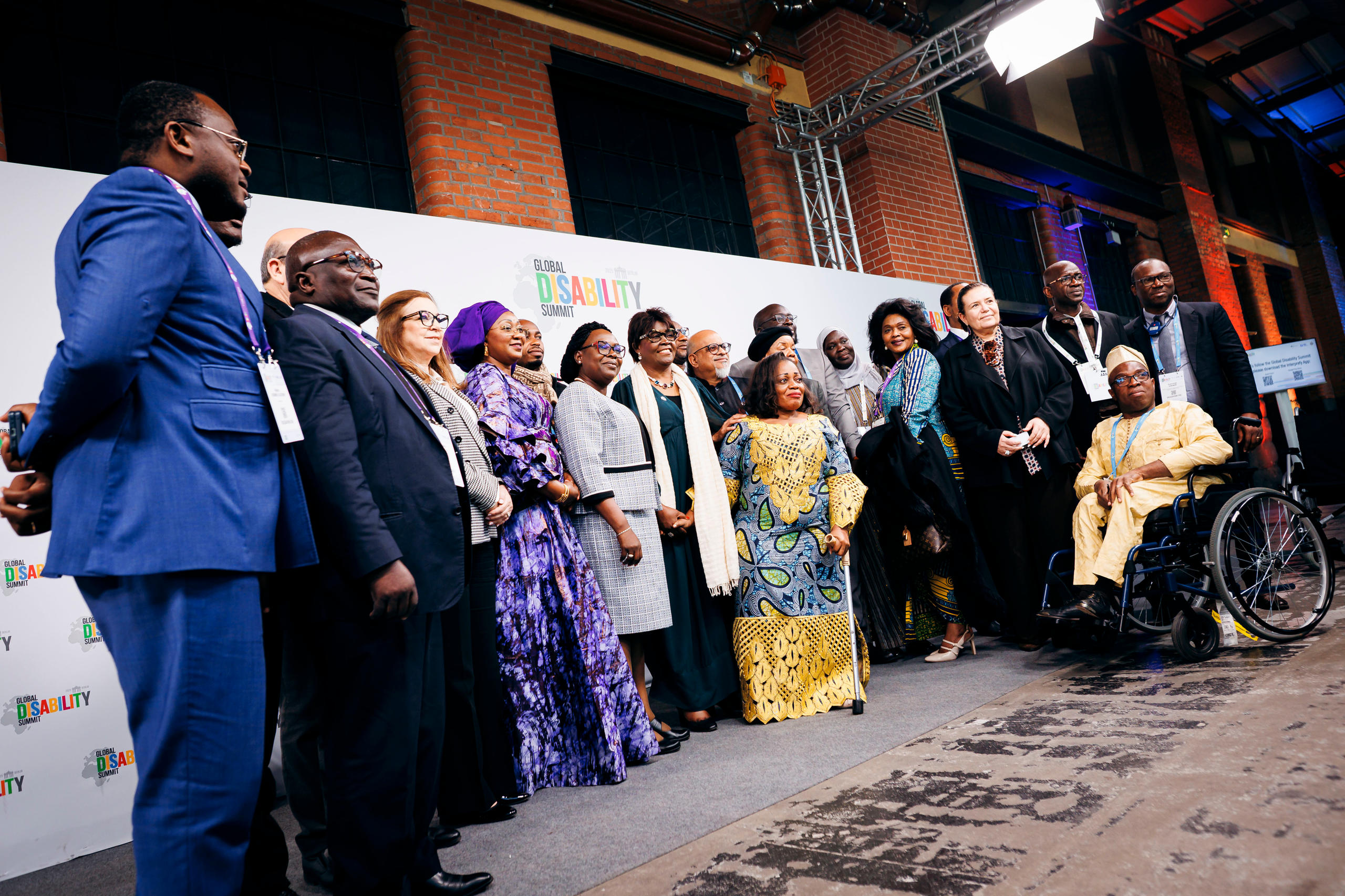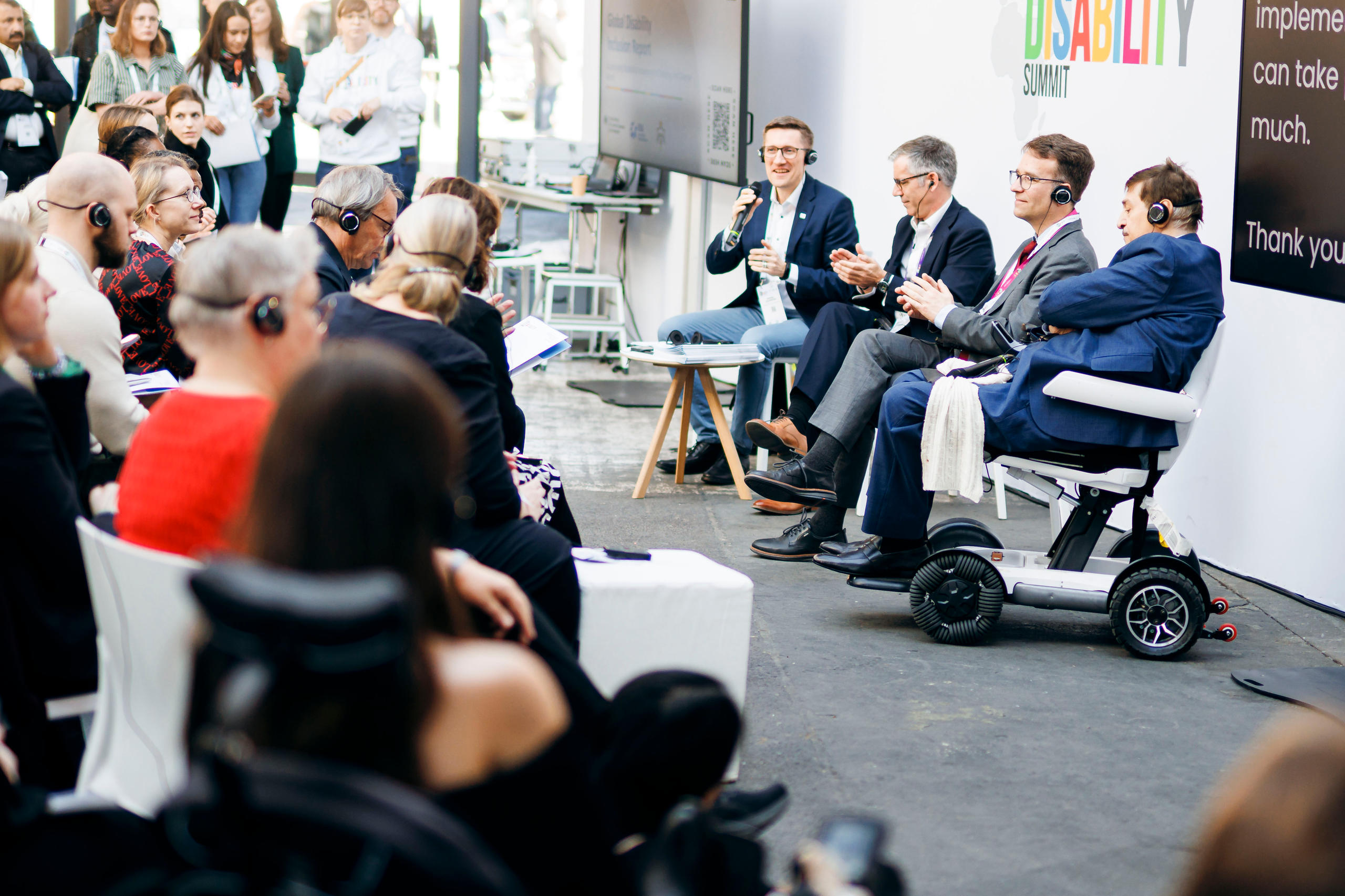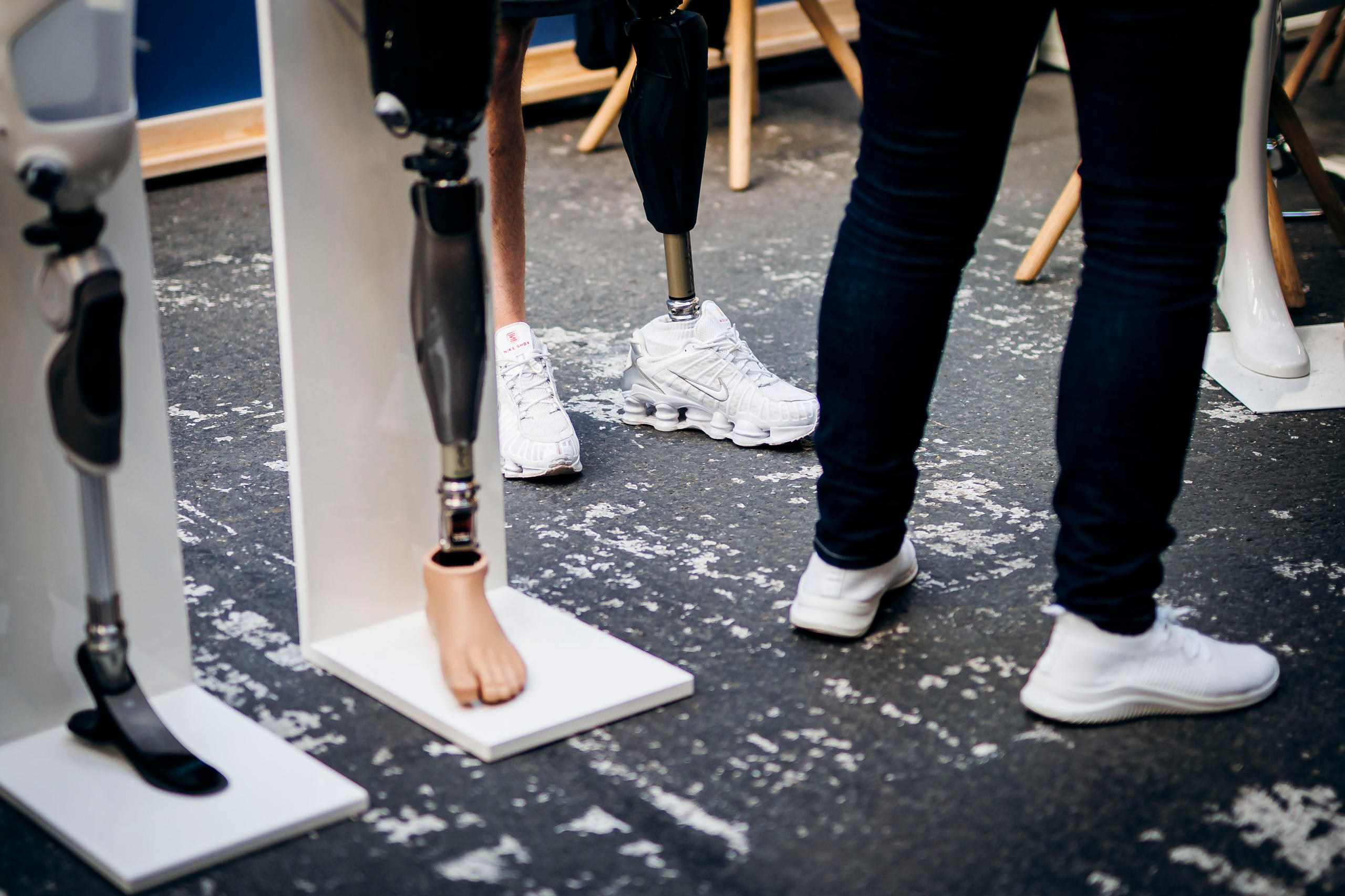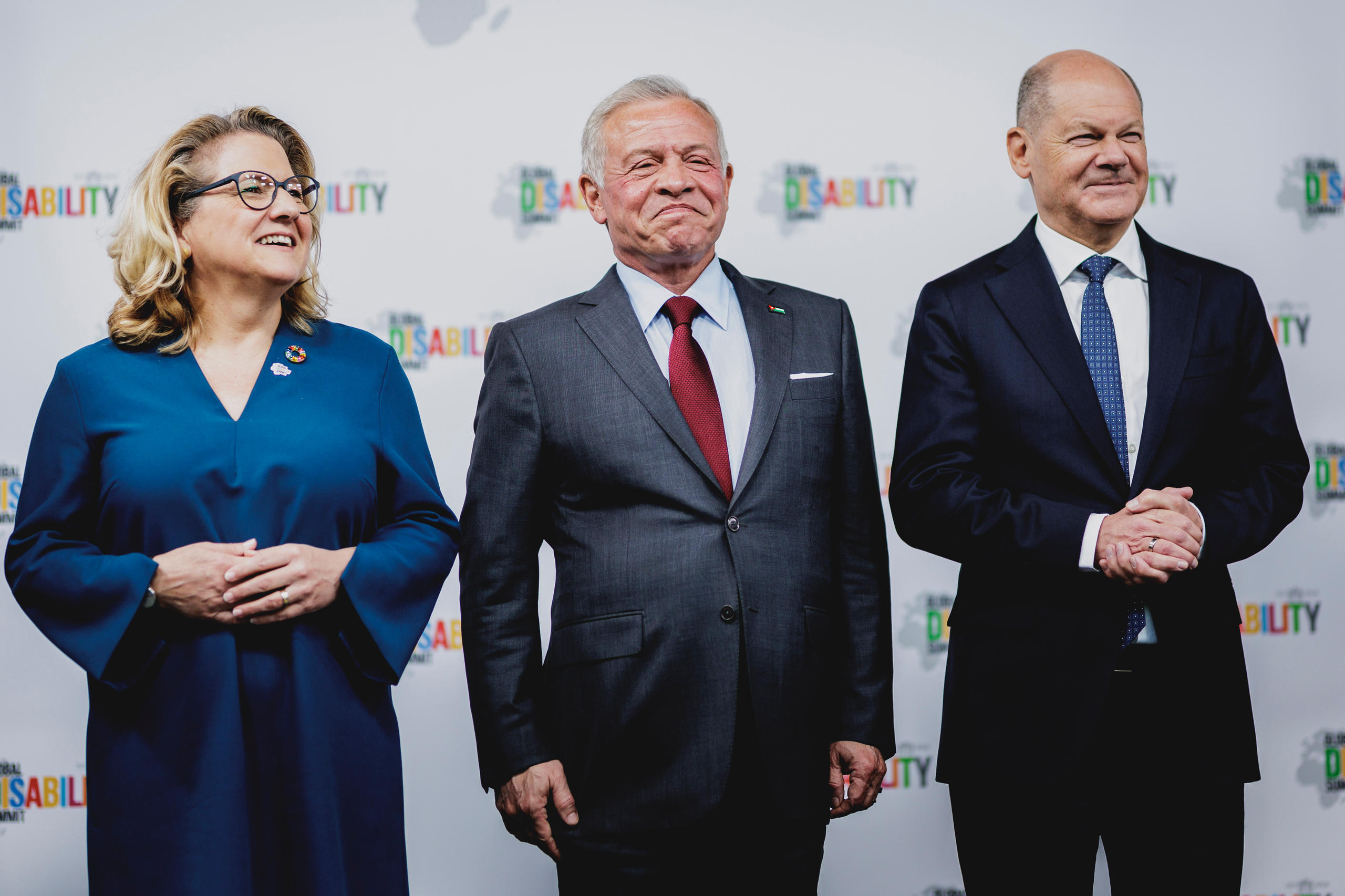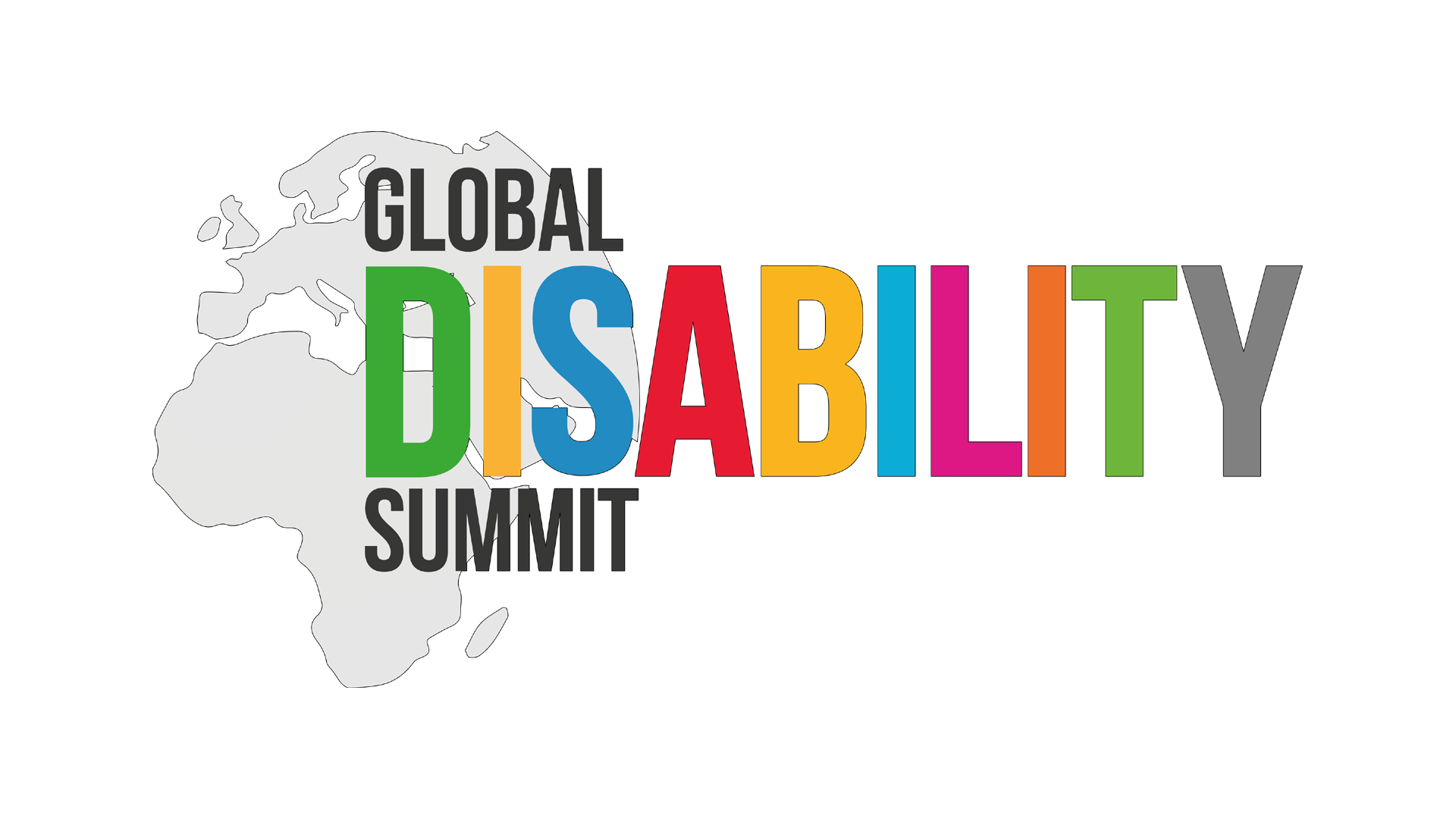Global Disability Summit (GDS) “15 per cent for the 15 per cent”: Global Disability Summit concludes with strong commitments for global inclusion
Development Minister Svenja Schulze said, “The Amman-Berlin Declaration represents a real breakthrough in addressing the rights of persons with disabilities worldwide. For the first time ever there is a measurable goal for how international cooperation can contribute to inclusion. That will boost the forces advocating globally for the rights of persons with disabilities. In addition, more than 800 commitments have been made: every one of them will bring the world a step closer to implementing the UN Convention on the Rights of Persons with Disabilities. At a time when some seem determined to assert the rule of the strong, this Summit sends a strong message of compassion. Together we are standing firm against every attempt to attack participation and inclusion.”
With 4,500 participants from around 100 countries, many of them persons with disabilities themselves, far more people came to the Summit in Berlin than initially anticipated. Over the course of two days, attendees took part in more than 60 events and sessions, where they discussed ways to further improve the realisation of the rights enshrined in the UN Convention on the Rights of Persons with Disabilities. Because, although the Convention has 192 parties, the world still has a long way to go. Additional efforts are needed worldwide so that persons with disabilities are able to participate equally.
A key outcome of the Summit is the Amman-Berlin Declaration. The co-hosts Jordan, Germany and the International Disability Alliance drew it up together and then sought support for it worldwide. With the Declaration, more than 60 governments from all the continents and over 20 international organisations and development banks have agreed for the first time on concrete, measurable goals for more inclusion in development cooperation. The central objective of the Declaration is to lay down a target of 15 per cent for the share of development projects in a country that are to be specifically aimed at promoting the inclusion of persons with disabilities. For comparison: right now, only about six per cent of development projects specifically contribute to fostering inclusion.
Development Minister Schulze said, “Development policy only works when everyone pulls together. That is exactly what has been achieved here. The Amman-Berlin Declaration is neither a one-sided promise by the donor countries nor a target solely meant for our partner countries. With the Amman-Berlin Declaration partners are joining forces worldwide in order to make '15 per cent for the 15 per cent' a reality. However, true inclusion will not just benefit the 15 per cent of people in the world who are persons with disabilities; it will benefit 100 per cent of people. In other words: all of us.”
Furthermore, during the Summit more than 800 commitments were made for more inclusion and accessibility all over the world – ranging from smaller individual projects to major systemic changes. For example, Germany and the African Union have agreed to work together to strengthen organisations representing persons with disabilities on the African continent, with a special emphasis on including young people and women. The multilateral education programme “Education Cannot Wait” will join forces with the German Development Ministry, the United Kingdom, the International Disability Alliance and the Girls’ Education Challenge in order to achieve an improvement by 2028 in data availability and accountability on inclusive education for children living in drawn-out crisis situations. In the co-host country Jordan, the private operator of the Ahliyyah and Mutran School has pledged to invest around 4.8 million euros in organising inclusive education, for example by procuring school materials that are designed from the outset so that they can be used equally by children with and without disabilities. All commitments will be published here (External link) after the Summit, so that their implementation can be transparently monitored.
The Amman-Berlin Declaration can be found here (External link). There you will also find an overview of all supporters.
Background
The Global Disability Summit is the most important international platform for promoting the rights and inclusion of persons with disabilities. The first summit was held in London in 2017, the second, in 2022, took place virtually – because of the COVID-19 pandemic. The summit in Berlin is the third Global Disability Summit to be held. Each summit is organised by three co-hosts, with the International Disability Alliance as a permanent co-host.
